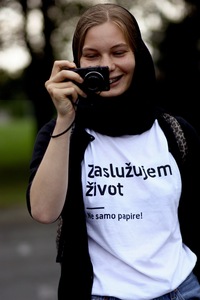
Migrations are an everyday occurrence. Today in the world there are around 215 million of migrants and around 35 million of persons that enjoy protection of UNHCR and national governments. In today’s context of forced migration, every society, that is state that approaches its own development and the protection of human rights responsibly and systematically, and that is faced with a more or less intensive influx of migrants, should come up with its own integration policy in a satisfactory way.
Integration policy means the assessment of goals and principles and a series of measures, activities and their encompassing participants that will be working on the inclusion of immigrants, and specifically refugees into certain societies. It is important to stress the fact that integration is a process, and that integration policies should take into account time as one of the key factors of successful integration. Integration policies differ with respect to the goals that recognise different models of integration or their combinations, and the choice of models significantly depends on the dominant values of societies and the models of society regulation. Today in theory and practice we speak of three most common models: assimilation, multiculturalism and interculturalism.
European Council on Refugees and Exiles defines integration as a process of change that is:
- dynamic and two-way: it creates demands for the receptive society and for individuals, that is communities. From the perspective of the migrant, refugee, integration requires a willingness to adjust to the lifestyle of the receptive society without losing their own cultural identities. From the perspective of the receptive society, integration requires a willingness to adjust public institutions considering the change of the population profile, accepting refugees as a part of the national community and taking actions that will facilitate the access to resources and the processes of decision-making;
- long-term: from a psychological perspective, integration begins with the moment of arriving to the target country and ends when the refugee becomes an active member of that society from a legal, sociological, economical, educational and cultural perspective;
- multidimensional: integration refers to the conditions of real participation of refugees in all aspects of economical, societal, cultural, civil and political life of the country in which they are arriving, but also to the refugees’ perspective of their acceptance and belonging to that same society.